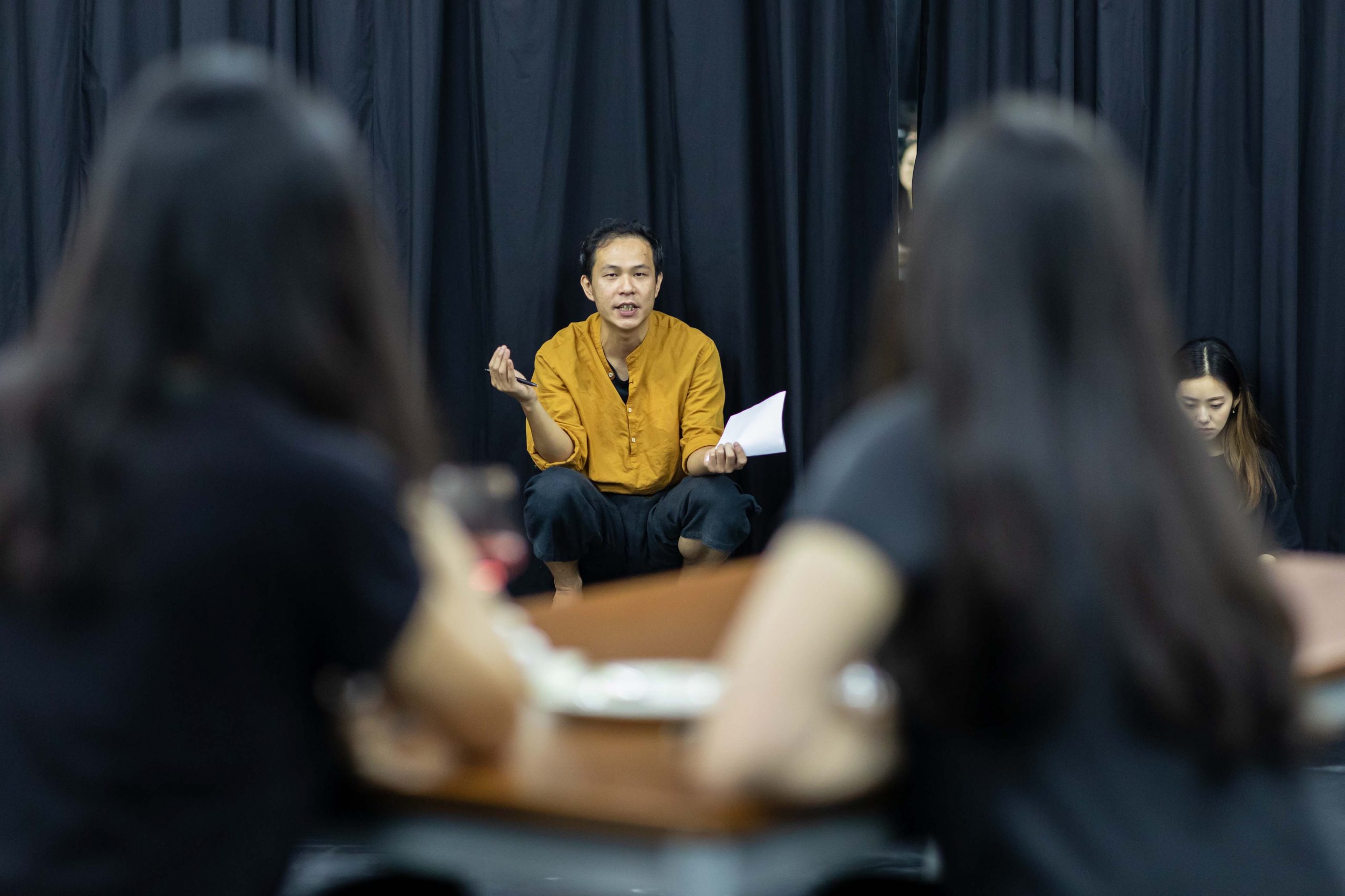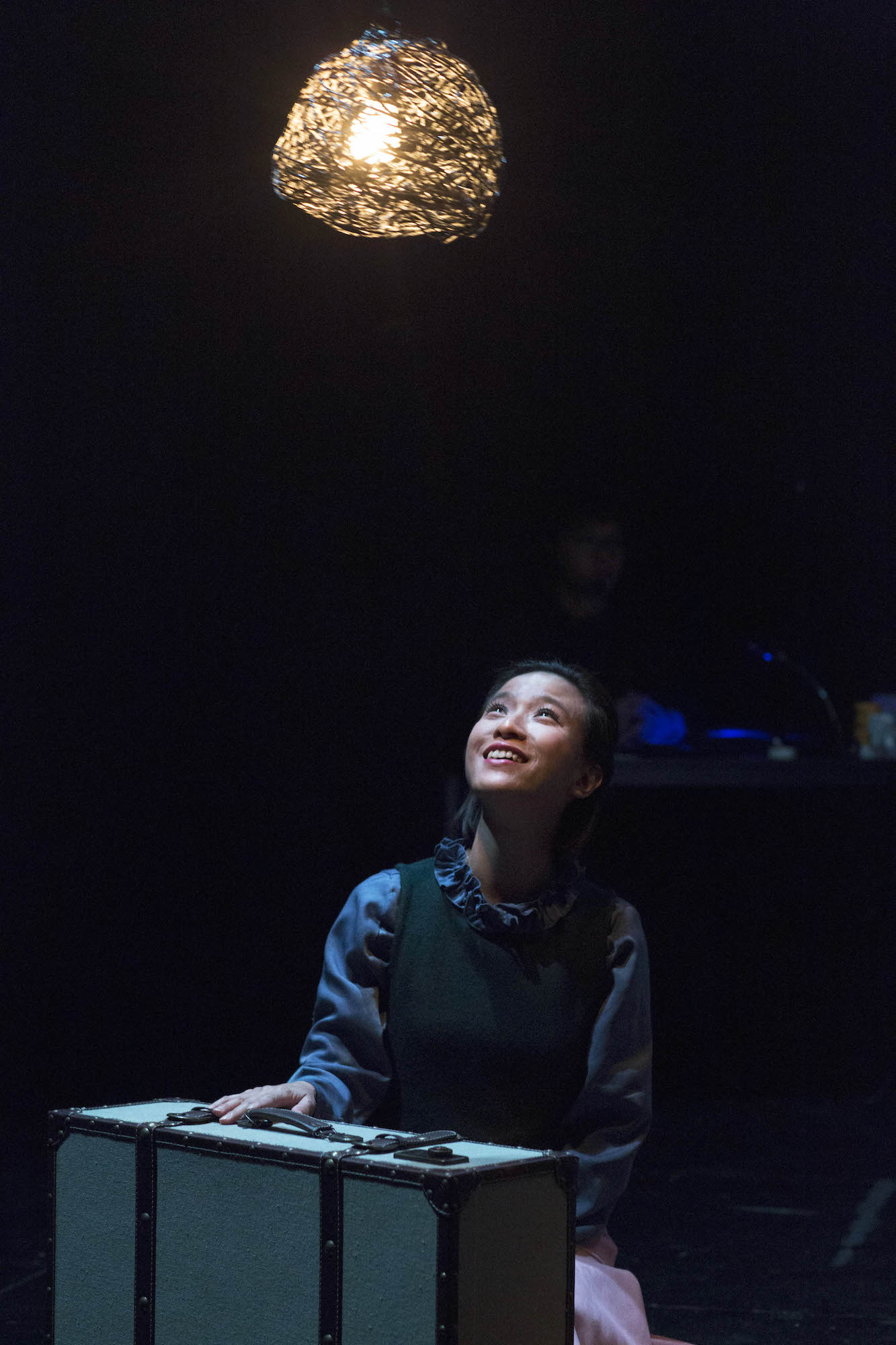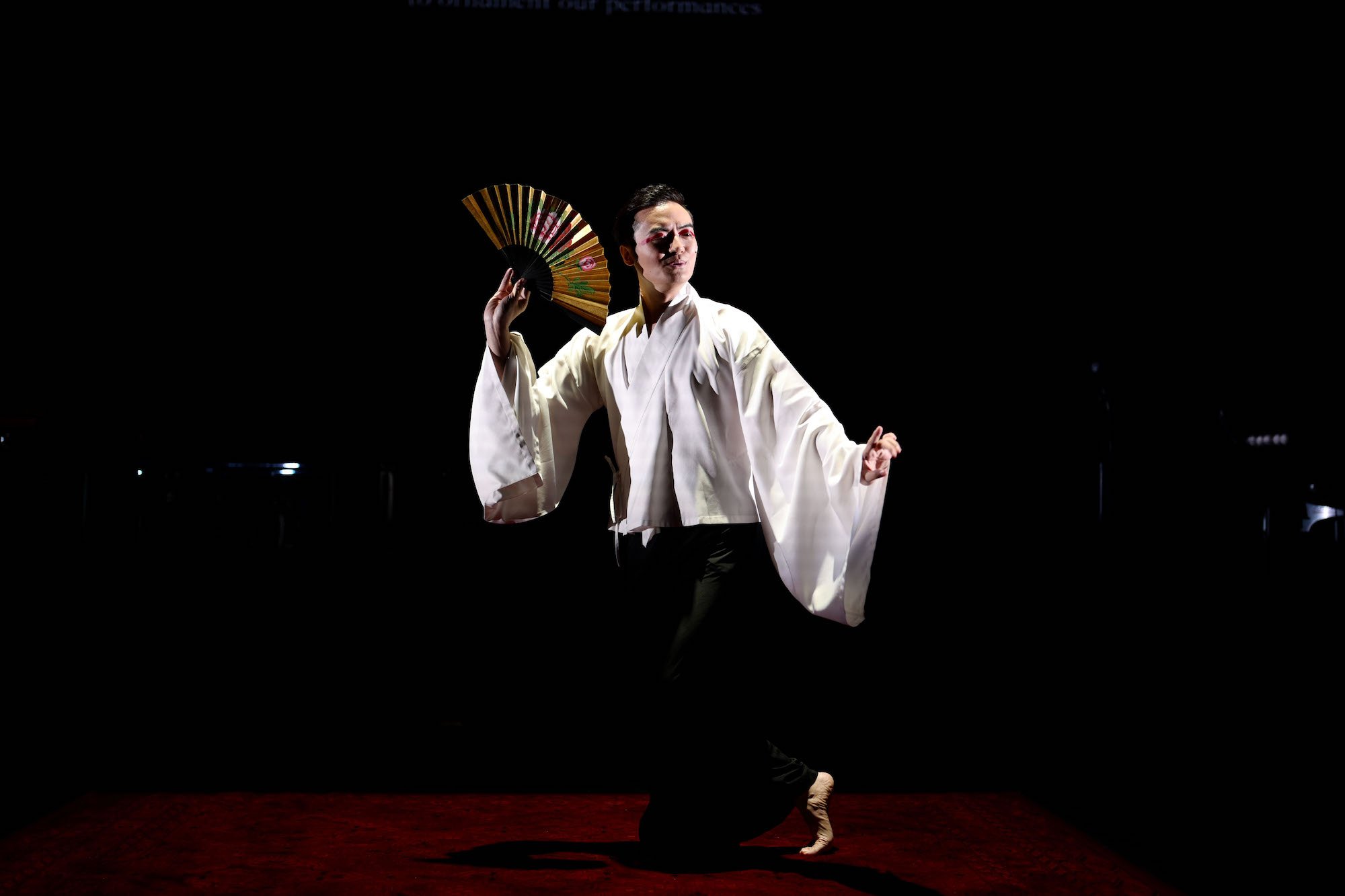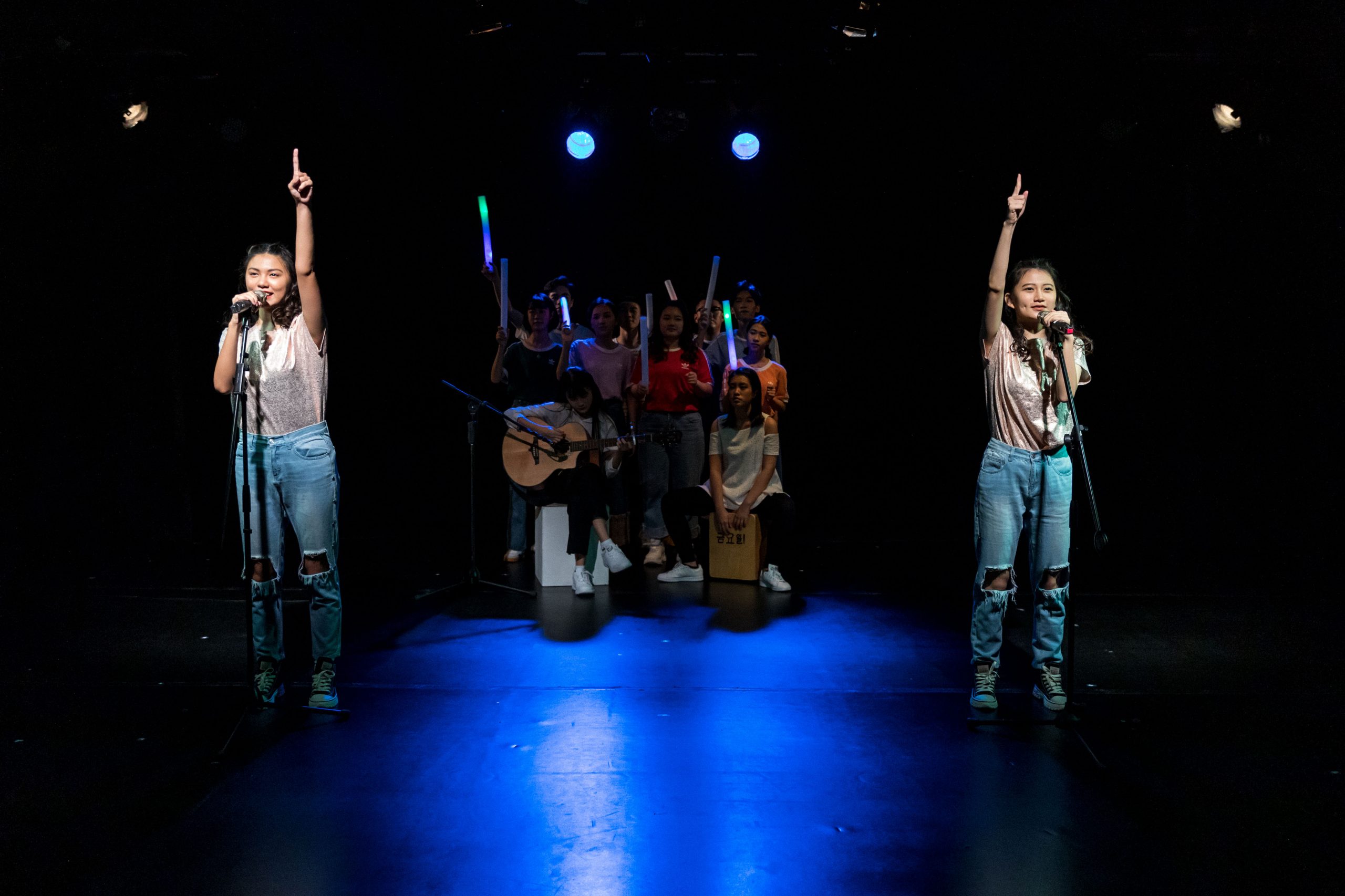Macao is known regionally for its theatrical productions. You can find almost every genre under the sun and the city has always had a penchant for plays, shows and operas, particularly those with East-West cultural mashups or that hold historical value.
The variety ranges from performances in the native Patuá language – protected as intangible heritage items – to recent contemporary pieces that explore local and international themes.
Cantonese opera has enjoyed the limelight, as have the extravagant Western shows but due to a triple threat – the internet, glitzy hotel shows and the Covid-19 pandemic – some theatre groups in Macao face challenges. What does the future hold for these local groups? We posed the question to five Macao theatre associations to see how they’re adapting and innovating as the city changes.
Hiu Kok Drama Association: Training the next generation

When it comes to producing hundreds of shows in Macao, one name takes centre stage: Hiu Kok Drama Association, an independent and non-profit drama association. This famous troupe has entertained audiences both at home, in mainland China, and even Portugal since it was established in 1975.
It’s done so well over the years, it even has its own “black box” experimental theatre, the Hiu Kok Laboratory, which has regularly staged performances for local crowds since it opened in 1999.
When it comes to the performers themselves, the company employs 60 actors who put on fascinating and exploratory original shows in Cantonese.
Hiu Kok stages a range of contemporary pieces every year – many of which take place at its 80-seat Laboratory – but there’s always one big annual performance featuring about 20 actors. Despite its success, the past few years have been tough for the company due to competition from the internet, big-budget hotel productions and pandemic pressures.
“The local theatre scene in Macao has been tough for many years now,” says artistic director Hui Koc Kun, also known as “Big Bird”. “The entertainment complexes put on bigger and more glitzy shows every year and this competition does hurt the local theatre scene. And then there’s the internet and more easily accessible TV – plus, Covid-19, which put a stop to some of our shows. That means no income.”
According to Hui, the troupe has introduced “serial projects”, which are plays that are run over a number of days or weeks, to increase box office revenues. “We try to survive on the box office income,” he says. “In fact, we hope we can survive on this income in the coming years. We appreciate the government’s subsidies, of course. They are extremely helpful. But it’s not good to just survive on subsidies, so we try to do as much as we can to stage quality productions and take good box office income as a result.”
The group is always looking for new ways to create opportunities, such as a three-year performance training project launched in 2019. As part of the project, Hiu Kok writers have reworked a past production – “Someone in Outlaws of the Marsh” – adding classic Chinese novel and opera elements. They then invited full-time actors, singers and dancers of all ages and backgrounds from Macao to train for the big production of the show in 2022. In addition, Hiu Kok has teamed up with veteran local actor Pak Hou Wong, who trains people in “all aspects of theatre”.
“The performers all pay to be trained by us over three years,” says Hui. “To be an actor from Macao is really hard – you usually need long-term work experience overseas and the money to fund that. We’re offering an alternative with this project. We’re helping to train our homegrown actors and actresses here in Macao, with a final product for everyone in the city to see.”
Training courses and acting workshops are a great way for the group to both support itself financially and to inspire more talents to consider performing arts as a career, says Ben Ieong, a Hiu Kok producer and actor.
“Despite the challenges, we remain optimistic,” says Hui. “After a period of falling box office numbers, people are coming back to our shows. Perhaps the fast-food nature of online viewing, combined with the new community spirit we have seen and felt during the pandemic, means that local community theatre is about to have its day once again.”
Dirks Theatre Arts Association: Exploring new art forms

Wu May Bo and Ip Ka Man, the co-artistic directors and driving force behind Dirks Theatre Arts Association, also believe that local theatre will soon “have its day” once again.
The two creatives both studied theatre at the Macao Conservatory school before joining forces in 2009 to create Dirks. The company stages an array of original and adapted contemporary shows in both English and Cantonese. Setting 2020 aside, they’ve seen growing audiences in the past few years.
“We think that local theatre is entering a sort of renaissance and we really hope that will be the case worldwide once Covid-19 is over,” says Wu. “It could be boom time for local theatre then, as people look to spend time together over a local show.”
Dirks often stages performances at the Black Box Theatre in Macao’s Old Court Building – a popular stage for up-and-coming contemporary companies. “We’re lucky to have money and a space to perform, so we can explore and create theatre,” he says, noting “helpful subsidies” from the government.
But there are big obstacles when it comes to the company’s survival. “We don’t own a space so creating and rehearsing shows, as well as running workshops, can be costly,” he explains. “Renting a space can often cost too much, so we rely on public resources and other companies who have spaces.”
With this mix of support, Wu believes that performance art will not only survive but grow sustainably in coming years. They are also exploring new types of theatre, which “carry resonance” and offer “a therapeutic experience.”
For example, Dirks regularly holds two government-subsidised workshops: drumming and the Feldenkrais method. The latter is a form of exercise that’s said to reorganise connections between the brain and body for improved movement and mental wellbeing.
“I was surprised that the workshops pulled in such a wide range of people, including teachers, civil servants and social workers,” says Wu. “These workshops show we are not just a performance group but we can also hold useful workshops in music and movement. It’s also a good source of audience for our shows. It all helps us to go on and grow.”
Last year, Dirks also experimented with interactive theatre. For an event in 2019, they teamed up with Drama Box theatre company from Singapore to present, “The Lesson: Macau”. At the performance, real audiences took part in a fictional government public consultation meeting to “vote” on where a new transport link should appear.
“This was real interactive theatre,” says Ip. “It was great to see real residents expressing their opinions openly with the actors. I hope people come to these shows and reflect on the issues and challenges we all face in the real world.”
Comuna de Pedra: Social movements through dance
Set up in 1996, Comuna de Pedra is known for its “physical” theatre. The company, which has performed around the world, explores the human body while examining social issues through its shows and workshops.
As a multi-disciplinary dance company, Comuna de Pedra also curates and produces art exhibitions, festivals and cross-cultural collaborative programmes every year. It has performed pieces in English, Portuguese and Chinese – or with no words at all – and has put on productions in locations across the city, from local theatres and parks to closed-down factories and even outside the Ruins of St Paul’s.
Expressive and surprising, the group also incorporates interactive improvisations, video arts, puppetry and live bands involved in the shows. The group also emphasises social issues – they’re not only part of the group’s ethos but also important to the next generation of showgoers.
In 2019, for example, the group interviewed construction workers from the mainland who work in Macao while tackling tough topics like labour, globalisation, poverty and immigration. The group’s actors portrayed the workers’ stories on stage in Comuna de Pedra’s “Migration Series 2019: The Labour and I” show in September 2019.
“One of the workers who had not been involved in performing arts before felt comfortable to tell us about his encounters,” says Jenny Mok, the troupe’s director. “When he watched our rehearsals, he was moved to tears. Our theatre often takes on tough social issues, which we unpack for the audience.”
Mok adds that a show performed with disabled people in Macao in 2018, “The World and I”, also explored social issues, such as discrimination and exclusion. At the same time, the show helped the disabled “express themselves in new ways”. “It is important to hear them in theatre,” says Mok. “They are part of our city.”
While the company continues to innovate with profound themes, challenging concepts and interactive elements, Mok worries about the future. “We are proud of our theatre company, but it can be a challenge to run. It costs a lot to organise and perform a live show,” she says. “Audience sizes have been going down over the years, possibly because the younger generations don’t seem to be as interested in live physical theatre as they once were.”
Even so, Mok has tried new strategies to engage younger showgoers, such as outreach events, workshops, and collaborations with local community organisations. “We need to find a way to attract more youth,” says Mok. “In the past, we have organised some acting and comedy workshops with NGOs, where young people can learn about performance skills. I think we can expand the variety of our workshops, as well as attract more youth through marketing and outreach. But we must work harder.”
Macau Experimental Theatre: Regional collaboration, local talents

Not-for-profit theatre company Macau Experimental Theatre, founded in 2008, has presented scores of dramas, including pieces staged in the Macao Arts Festival, as well as at small theatres and performance spaces across the city.
Nearly all of the troupe’s pieces are in Chinese and, as the name suggests, it leans towards the novel and experimental. Macau Experimental Theatre does everything from writing original scripts to adapting classics and producing the works of local playwrights. In terms of being experimental, Artistic Director Johny Tam says that it is all about original ideas and unexpected contexts. “It does not necessarily have to be ‘new’ to be experimental,” says Tam. “My ideal for experimentalism is to keep the creative nature of a work without compromising [for the sake of] popularity.”
Recent original hits include award-winning musical theatre piece, “Mr Shi and His Lover”, which incorporates characteristics of Western musicals alongside musical elements and philosophy from the East. The group also produced the much-praised community theatre production, “Migration”, which sees actors working closely with some of Macao’s Indonesian domestic workers.
Like other troupes, though, Tam says the company has experienced its share of challenges over the past 12 years. “Due to increasingly high rents and a huge workload, we had to readjust our budget in 2015,” he says. “We had to give up our own black box theatre and use public venues instead. We also stopped producing multiple shows every season, focusing on individual productions [a few a year].”
The group has had to move their base four times due to expenses. “It’s not easy but we continue to dig deep, put on quality productions and survive in Macao,” adds Tam, who is also the chief curator of Macao’s annual BOK Festival. Usually taking place in August, the festival is dedicated to local theatre.
Tam adds that the BOK Festival is another important way to not only highlight Macao’s local theatre expertise but also “interest new people and younger generations” in theatre. “Through engaging interactions and performances,” he says, “the people who experience festivals like BOK in Macao will discover that they like the theatre.”
In the future, Tam hopes to feature more Asian artists alongside talents from Macao. He also hopes to “shed light on creative insights and social issues” in Macao as part of his personal philosophy. “I hope to encourage people to reflect and express their views to life, and maintain an open mind,” he says.
Dream Theater Association: Community in focus

Evolving from a school theatre group in 2008, the Dream Theater Association has become a major force in Macao’s youth and community theatre scene. Performed in both English and Chinese, the original and emotive shows draw a loyal following among local theatre-goers.
“Through our projects, we hope to broaden young people’s viewpoints and help them express their views on family, friendship, society and growing up,” says General Director Joanna Chan. “At the same time, they can learn about theatre, such as performing and stage management. When we discover new talents, we encourage them to pursue more theatrical opportunities and do our best to support them.”
According to Chan, the company’s young members – many of whom are still in secondary school, or recent graduates – “explore artistic expressions and passions in their work” by working together on various projects and performances.
They also work closely with local community organisations, such as a drama workshop with the St Antonio Elderly Centre. “The staff of the centre really trusted and supported us to engage their young volunteers in this artistic project,” says Chan. “After the success of this workshop, we started working with other charity groups and centres to bring our shows to the community.”
When asked how the company survived 2020, Chan admits that hard work is the key. “We have been working on a packed schedule to achieve what we want – namely, many shows and workshops at as little cost as possible,” she says.
She says the company has received subsidies from the government, which have helped keep the troupe afloat. “We also must rely on collaborations with local organisations who can help us financially and with the workload,” says Chan. “When we want something done in Macao, we know how to work together!”
With a goal to nurture Macao’s next generation of performers, Dream Theater Association strives to work with young people whenever possible but the pandemic has made that more challenging. “[Some of] our shows have been cancelled or postponed,” adds Chan. “It’s not an easy time – and not just for us. It’s also hard for those who are paid to help us as freelancers. But we rise to every challenge.”
An ability to produce motivational, inspiring and uplifting shows – something audiences seem to crave – has also helped to keep the company afloat over the past few years. For example, Mok points to 2017 show “The Victory Shipyard”, where the company invited shipbuilders in Macao and their stories. By showcasing these stories on stage, the troupe hoped to raise awareness about the decline of shipbuilding, the loss of this craft, and how it impacts the community.
In 2020, the team completed a mobile theatre production, “The Story Vendor”, which told the stories of Chinese and Portuguese cultures at various spots around town. “We chose a mobile style because we wanted to expand our audience and increase appreciation for our local culture.”
With big glitzy shows on offer in Macao’s entertainment resorts coupled with the lure of the internet, cinema and TV, the local theatre companies will probably always face a battle to survive.
But Macao is a passionate city with a love for the arts. With a mix of public support, government subsidies, and innovative solutions, local shows and plays should be an integral part of the city’s arts scene for many years to come.






